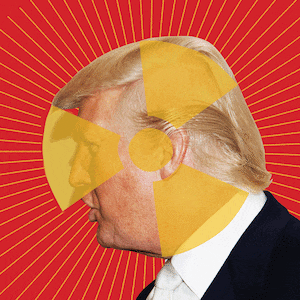At a time when it feels like democracy is on the line, one of the most closely watched U.S. Senate races is shaping up to be an identity politics battle to see which rich guy can out-populist the other.
I’m talking about Pennsylvania, where Dr. Mehmet Oz’s attempt to pander by talking about how expensive groceries have gotten (he blames President Joe Biden) badly backfired. First, he called the grocery store “Wegner’s,” which seems to be some mangled combination of Wegmans and Redner’s. Second, he referred to crudités, which, as Fetterman pointed out, is typically called a veggie tray in PA.
To make matters worse, The Daily Beast reported this week that Oz owns 10 properties, including a mansion in New Jersey and two houses in Turkey.
Oz’s wealth and celebrity image—not ideology or public policy debates—seem to be driving the campaign. This is ironic, in part because Fetterman (who boasts a master’s degree from Harvard) is also from a privileged background.
As the Philadelphia Inquirer noted earlier this month, “for a long stretch lasting well into his 40s, his main source of income came from his parents, who gave him and his family $54,000 in 2015 alone. That was part of the financial support his parents regularly provided when Fetterman’s only paying work was $150 a month as mayor of Braddock, a job he held from his mid-30s until he turned 49. Partway through his tenure, in 2013, he moved to an industrial-style loft he purchased from his sister for $1 after she paid $70,000 for it six years earlier.”
So, we have a rich guy whose entire life and career, well into his middle age, were subsidized by mommy and daddy, versus a rich celebrity doctor, whose residency in the state is dubious.
This is more a microcosm of today’s U.S. politics than an anomaly.
In a country where only about 8 percent of the adult population are millionaires, and more than half the members of Congress are millionaires, the gap between the citizens and our “public servants” has widened. According to a 2011 article in The Washington Post, as recently as 1975, “it wasn’t nearly so unusual for a person with few assets besides a home to win and serve in Congress.”
But the choice for the next senator from Pennsylvania originally wasn’t just between two rich guys. Consider also that Oz’s elevation to Republican nominee came by virtue of defeating former hedge fund CEO David McCormick (who is worth tens of millions and arguably comes across as even less of a regular guy than Dr. Oz).
If relatability remains the sine qua non of this campaign, Fetterman will win handily, based on his ability to outwardly appear like a working-class schmo.
The only thing that could possibly derail or supplant this narrative is Fetterman’s health. Three months ago, he suffered a stroke, causing him to retreat from the trail.
For now, though, Fetterman’s ability to cast Oz as the effete elite (traditionally, Democrats have been more vulnerable to this tactic) is the storyline. This illusion is aided by Fetterman’s sheer size, bald head, tattoos, and penchant for wearing hoodies with shorts. He looks more like a regular guy (if, by regular guy, you mean a biker who could kick your ass in a bar fight).
Image is, in politics, everything. Everyone running for office in Pennsylvania feels the need to at least pretend to be blue-collar. But is it possible the biggest poseur is the guy who is shameless enough to pull it off?
The ability of unlikely elites to reinvent themselves as populist heroes is nothing new. Franklin D. Roosevelt, scion of one of the wealthiest families in New York, was a very successful traitor to his class. More recently, in 2016, Donald Trump (a fellow celebrity who endorsed Dr. Oz) cast himself as a populist outsider, despite being a New Yorker and (allegedly) a billionaire—who had his wealth seeded by daddy.
Not everyone is so skilled at this maneuver. Blue bloods like John Kerry and Mitt Romney both tried, and failed, to connect to the working class voter on a national level. Ivy League populists (see Sens. Ted Cruz, Josh Hawley, Elizabeth Warren, et al.) fared better in their states, but continue to struggle to appear as the genuine article (yes, they pulled it off enough to make it to the U.S. Senate, but I don’t think they’re fooling many people).
Fetterman, for now, appears to be in the Trump category of privileged people who have managed to connect with the everyman.
This is not to say that Dr. Oz is a better man—or that he would make a better senator. But our country has serious problems. China. Inflation. Donald Trump. You name it. Is this the best way to pick a U.S. senator?
Pennsylvania has long been an important swing state. Its Rust-Belt union-card Democrats loved “Joe from Scranton,” but also Donald Trump in 2016.
And now, control of the U.S. Senate could come down to whether your rich candidate calls it a veggie tray or crudités?
May the more convincing phony win!









